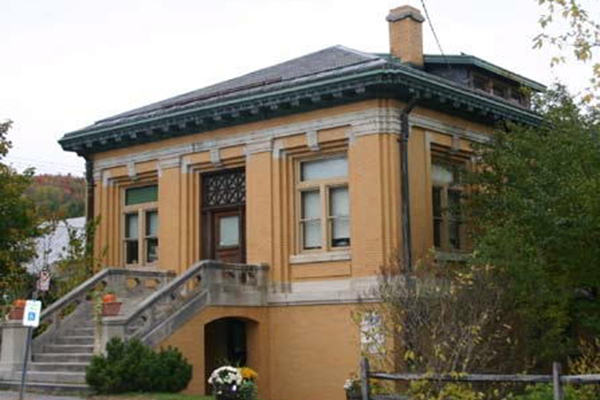The Waitsfield Select Board held another contentious discussion about a tri-town proposal to create a local option tax (LOT) this week with select board chair Paul Hartshorn suggesting that the town adopt its own local option tax and increase funding for the Mad River Valley Recreation District.
Board member Darryl Forrest challenged that idea, asking Hartshorn how he’d address the other issues that a Valleywide LOT is aimed at addressing.
A subcommittee of the Mad River Valley Planning District is proposing a 1 percent LOT on rooms, meals, alcohol and retail sales. Voters in all three towns will be asked to approve the proposal at Town Meeting 2020. Funds from that tax would yield $700,000, which would be invested in housing, transportation, recreation, community projects and marketing.
Currently a tri-town committee with two select board members from Warren, Waitsfield and Fayston is negotiating an interlocal agreement detailing how funds would be collected and dispersed. The plan calls for local organizations to apply for grant funding for specific types of projects. A commission made up of two people appointed by each select board will hear and act on grant requests. There will be a chair appointed from the planning district’s steering committee who will vote only to break a tie.
This week, at the Waitsfield Select Board’s June 24 meeting, Forrest and board member Kellee Mazer, who serves on the tri-town negotiating committee, reported back on their work. Board member Sal Spinosa had asked them to request a split where the town kept a portion of LOT funds raised and Hartshorn, Spinosa and board member Jon Jamieson asked that they request a sunset provision on the LOT. With a sunset provision, voters in the three towns would need to reauthorize an LOT at specific intervals, likely every five years.
Mazer and Forrest reported there was no interest in either of those ideas from the rest of the negotiating committee.
“There’s already a bailout clause if towns want out,” Forrest said.
“The question of how much Waitsfield would keep? That fell on deaf ears when we brought that up. This money is for the future economic vitality of The Valley, not maintaining the roads in Waitsfield,” Forrest said.
Spinosa asked Forrest if he had tried to sell the idea of a split to the negotiating committee.
“I didn’t try to sell it because I don’t believe in it,” Forrest said.
Forrest challenged Hartshorn’s plan to create a Waitsfield-only LOT and increase funding beyond the $15,000 that each town already pays to the recreation district and said if that was what Hartshorn wanted he should state that clearly.
“I just did,” Hartshorn said.
Spinosa returned to the idea of a sunset clause and Mazer asked what the difference is between that and town’s being able to vote to opt out.
Jamieson said he thought a sunset clause would make it easier for the LOT to pass and said it lends credibility to the idea.
Spinosa said he felt it was going to be hard for the public at large to understand the LOT proposal and said he felt Hartshorn’s idea was a “real idea” and a good alternative for the town to consider.
Forrest again asked about how housing, transportation, recreation, community projects and marketing would be addressed under Hartshorn’s proposal.
“Those are the planning district’s areas that they chose for us,” Spinosa said.
Jamieson objected, noting that those particular issue areas had been identified over and over through multiple processes and said those things floated to the top from those who participated.
“But there are studies and research that show that we have to reinvest in our Valley to keep it alive and the main purpose of this is to get our Valley thriving through the downtimes. I’m a landlord to restaurants that have trouble keeping it going during those downtimes. One main focus of this is not to get overcapacity during peaks; it’s to roll out those peaks and valleys in business. We have to reinvest in our future. This is not our decision. It goes to the taxpayers. Who are we to not give them the opportunity to vote?” Mazer asked.
Returning to Forrest’s question about how Hartshorn’s proposal addressed housing, Spinosa asked if there is something the town can do toward that without creating a sub-government – something he has suggested that a tri-town LOT commission dispersing LOT funds represented.
“It’s taxing and spending. It’s our authority and responsibility,” Spinosa said.
“Don’t give me this shadow government thing. It’s not a shadow government,” Forrest said.
The tri-town LOT commission that will hear and review grant applications will not have the power to tax.
Spinosa persisted, suggesting that Hartshorn’s idea was a real alternative and asking that the current proposal be slowed down.
“That’s our opinion, not everybody shares that opinion. If you don’t like it when it comes back, you can vote it down,” Forrest said.
“The reality is that we’re a minority. Unless we can flip one of you that’s the way it’s going to stay. We didn’t put this thing on the table. It was put on the table for us. It was presented to us,” Spinosa said.
“Sal, you’re just bloviating now. We’re getting lectured to now,” Forrest said







